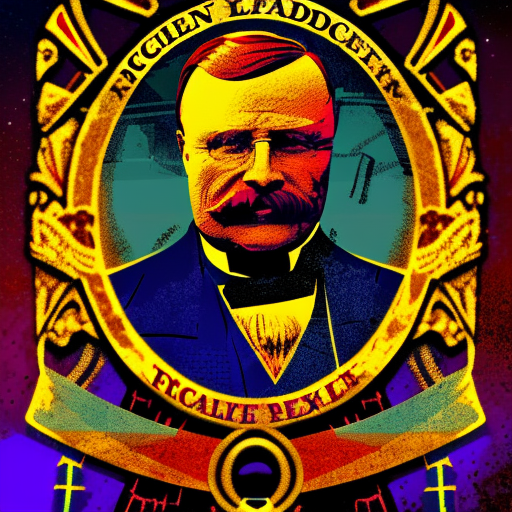Theodore Rex: A Summary
Theodore Rex is a captivating biography written by Edmund Morris that delves into the presidency of Theodore Roosevelt, exploring his accomplishments, challenges, and impact on American history. From his rise to power following the assassination of President McKinley to his efforts in trust-busting and conservation, Roosevelt’s presidency was marked by his energetic and progressive approach to governance. This book provides a comprehensive look at the life and legacy of one of America’s most influential leaders.
The Rise of Theodore Roosevelt
Theodore Roosevelt’s journey to the presidency was anything but ordinary. Born into a wealthy New York family, Roosevelt faced numerous health challenges throughout his life, including asthma and nearsightedness. However, his determination and resilience propelled him forward. As a young man, he pursued a career in politics, serving in various government positions before becoming the Assistant Secretary of the Navy. It was during this time that Roosevelt gained national attention for his leadership during the Spanish-American War.
The Progressive President
When Roosevelt assumed the presidency in 1901, he brought with him a vision for a more progressive America. He believed in the power of the federal government to regulate big business and protect the rights of workers. Roosevelt’s presidency was marked by his efforts to break up monopolies and trusts, earning him the nickname “Trust Buster.” He also championed conservation, establishing national parks and forests to preserve America’s natural beauty for future generations.
Roosevelt’s progressive agenda extended beyond economic and environmental issues. He was a vocal advocate for social justice, pushing for reforms in areas such as child labor, workplace safety, and women’s suffrage. His Square Deal policy aimed to create a fair and equitable society for all Americans.
Challenges and Legacy
Despite his many accomplishments, Roosevelt faced numerous challenges during his presidency. He navigated through labor strikes, political scandals, and international conflicts, including the Russo-Japanese War, for which he was awarded the Nobel Peace Prize. Roosevelt’s foreign policy, known as the “Big Stick Diplomacy,” emphasized American power and influence on the global stage.
After serving two terms as president, Roosevelt decided not to seek re-election in 1908. However, his impact on American politics and society continued long after his time in office. He remained an influential figure, advocating for progressive causes and even running for president again in 1912 as a third-party candidate.
Key Takeaways:
- Theodore Roosevelt was a progressive president who believed in the power of the federal government to regulate big business and protect the rights of workers.
- His presidency was marked by his efforts in trust-busting, conservation, and social justice.
- Roosevelt faced numerous challenges during his time in office, but his impact on American politics and society was long-lasting.
“Do what you can, with what you have, where you are.” – Theodore Roosevelt
In conclusion, Theodore Rex provides a comprehensive and engaging account of Theodore Roosevelt’s presidency, highlighting his progressive policies, challenges, and lasting legacy. Roosevelt’s energetic and visionary approach to governance shaped the course of American history, leaving a lasting impact on economic, environmental, and social reforms. His presidency serves as a reminder of the power of leadership and the potential for positive change.












